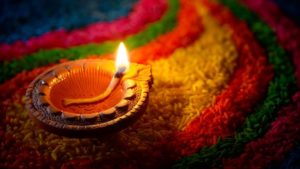 I live in what I would consider a nice middle-class neighborhood. The houses are older, but well-kept, and the residents are small business owners and a mix of blue and white-collar workers. Most of our kids go to college, and crime is almost unheard of.
I live in what I would consider a nice middle-class neighborhood. The houses are older, but well-kept, and the residents are small business owners and a mix of blue and white-collar workers. Most of our kids go to college, and crime is almost unheard of.
Many years ago, when I was a young mother, I learned that not everyone saw us the way we see ourselves, and the experience started me on a journey to examine my own prejudices.
My daughter was a member of a Camp Fire Girls troop in our community, and we were spending an overnight in a cabin with another troop from a more upper-middle class community. I didn’t see myself as different from them in any significant way. They doubtless had bigger houses and more expensive cars than mine, but in terms of values, morals and education, I felt myself to be their equal.
Late in the evening, as we were cleaning up, I was looking for the bag that a dish of candy had come from, with the idea of dumping the candy back in the bag. I walked the perimeter of the room, glancing into totes, looking for the candy bag.
“Are you looking for YOUR bag?” someone said from behind me.
“Oh, no,” I replied, at first not even turning around to look at her, “I’m looking for where this candy belongs.”
Then, something in the emphasis on the word “YOUR” caught my attention and I turned to see the very suspicious face of a Camp Fire mom from the better neighborhood. In the same instant, I remembered noticing an expensive-looking camera in the most recent tote I’d glanced into.
It was one of those moments of instantaneous, wordless communication. All in a fraction of a second, I realized with horror that she’d thought I was poking around the bags looking for something to steal, and that she thought it because we came from a neighborhood where she thought people did that. And in the same second, she registered the shock on my face and realized that she’d made a wrong assumption.
I don’t remember how we disengaged, but I remember not being able to sleep that night. I felt so humiliated that anyone would assume that I was a thief, and that they would make that assumption based on my living in a neighborhood that I thought was perfectly respectable. What’s more, even though I’d done nothing wrong, I FELT wrong: dirty and unworthy in some way. And, for some reason, it hit me: the way that woman treated me is the way white people treat black people.
Admit it: if you’re sitting in traffic and a couple of African-American boys saunters down the street, you lock your car doors. If you work retail, you watch your black browsers more carefully than your white browsers. It’s certainly well-known that black drivers are stopped by the police more than white drivers. White people make negative assumptions about black people all the time, often unconsciously.
Do you think they don’t know this?
How do you think it feels?
The experience that I had on that sleepover started me on a journey to acknowledge my own biases. Before that, I wouldn’t have called myself prejudiced. I didn’t think African-Americans were inherently inferior to European-Americans in any way. I felt that we were all entitled to the same rights. I would no sooner have used the N-word than the F-word. But, like many white people, I thought we lived in a society where we all had the same opportunities and everyone had the same chance to get ahead in life as long as they worked hard and stayed out of trouble. The epiphany that I had that night didn’t change me by the next morning. But it opened my eyes, and I started paying more attention to big issues like unequal treatment under the law – and small issues like the hurtful impact of my own preconceived notions.
The first step to getting along better is to acknowledge our biases. It took being on the wrong end of a bias to inspire me to do that.
This week, think about some negative assumptions that you have about a gender , ethnic or economic group different from your own, and how hurtful they might be to the objects of your prejudices.

Hi Kathy:
Thanks much for sharing your powerful story. It is interesting to parallel your experience with a 2001 short video (5 minutes, 40 second) called “Silent Beats” by Jon Chu regarding this same topic. It is readily available on YouTube.
I have facilitated discussions about peoples’ reflections on the video, the messages within the video and their own life experiences in diversity training sessions. Some of the conversations have been quite enlightening!
Keep on Keepin’ on!!
I did find the video on youtube. Thanks. So true, how we have associations & stereotypes! I think it’s part of being human, but something we have to fight against.